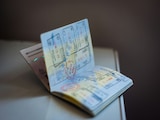Prime Minister Narendra Modi will attend the Maldives' 60th Independence Day celebrations in the capital, Male, as the Guest of Honour, on Saturday. PM Modi is in the island nation at the invitation of President Mohamed Muizzu.
A look at Maldives' history
The Maldives gained full independence from British rule on July 26, 1965, marking the end of a protectorate arrangement in place since 1887.
While never formally colonised, the Indian Ocean archipelago remained under British influence for nearly eight decades, during which the UK oversaw its defence and foreign affairs.
In 1932, the Maldives adopted its first democratic constitution, though it continued as a sultanate. A brief republican experiment began in 1953 but was soon reversed, restoring the monarchy. Following independence in 1965, the nation transitioned to a republic in 1968, formally abolishing the centuries-old sultanate system.
The decision to seek complete independence was formalised through a declaration signed in Colombo on July 26, 1965, by then Prime Minister Ibrahim Nasir Rannabandeyri Kilegefan and British Ambassador to the Maldives, Sir Micheal Walker.
How long was Maldives under crown rule?
The Maldives remained under British protectorate status for around 78 years, from 1887 to 1965. During this time, the sultanate retained internal autonomy while Britain oversaw foreign affairs and defence. Throughout this period, Britain built a significant military presence in the southern atolls, especially during World War II.
In 1941, Royal Navy engineers began constructing an airfield on Gan Island in Addu Atoll, later formalised as RAF Gan in 1957, which served as a staging post for Allied aircraft across the Indian Ocean until its closure in 1975-76.
In March 1968, a national referendum was held in the Maldives to decide whether the country should continue as a constitutional monarchy or adopt a republican system. With over 93% voting in favour, the decision led to the abolition of the sultanate and the establishment of a presidential republic under Prime Minister Ibrahim Nasir.
On November 11, 1968, the new republican constitution formally came into force, marking the official end of the monarchy. That day, Ibrahim Nasir was sworn in as the first President of the Second Republic of the Maldives.
PM Modi's presence at Maldives' Independence Day event
PM Modi's presence in Male for the Maldives' 60th Independence Day celebrations highlights India's long-standing support since the island nation attained sovereignty in 1965.
As one of the first countries to recognise Maldivian independence, India now views this visit as an opportunity to strengthen cooperation in various areas such as maritime security, regional stability, infrastructure development and cultural exchange.
"The roots of our relations are older than history, and as deep as the ocean," PM Modi said after holding talks with Mr Muizzu on Friday.
India-Maldives friendship will always "remain bright and clear" irrespective of any circumstances, he said.















